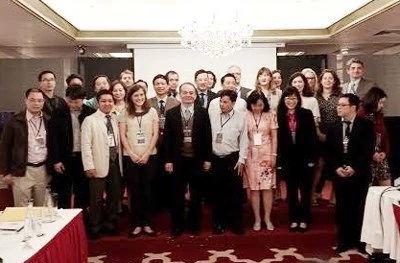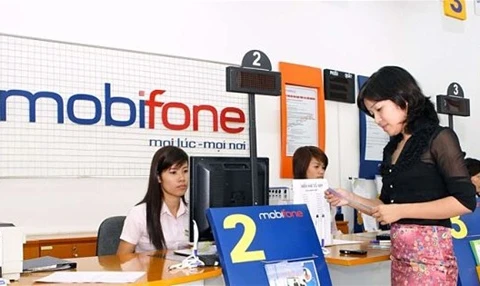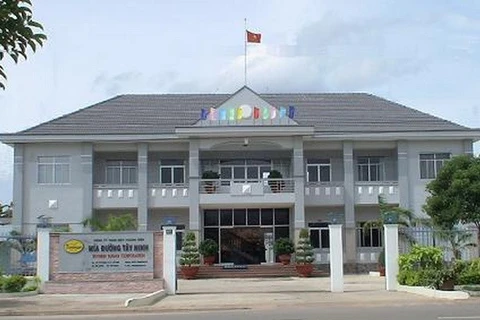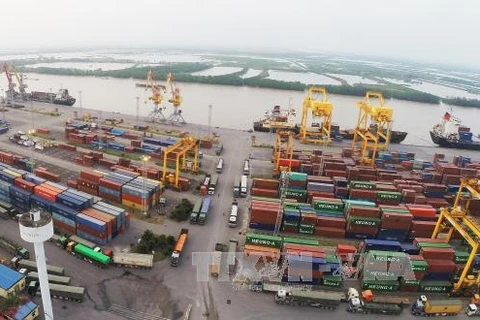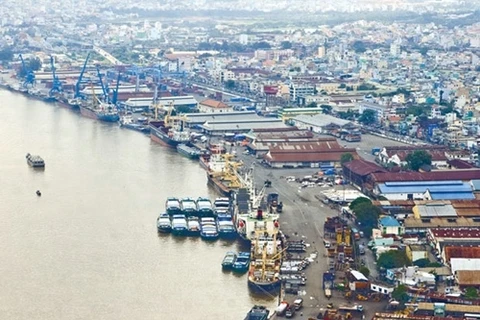Hanoi (VNA) – The Government has approved a plan to establish a special committee, which will operate like a business, to manage capital at State-owned enterprises (SOEs). While the scheme is scheduled to be discussed before the National Assembly in the third quarter of this year, official data revealed that companies wholly or more-than-half owned by the State have a combined asset value amounting to around 5 quadrillion VND, or 222.2 billion USD.
Nguyen Dinh Cung, Director of the Central Institute for Economic Management, talked to local reporters during a recent policy discussion in Hanoi about the issue.
* How can the committee deal with current shortcomings in the management of SOEs, especially in the reorganisation of State utility firms?
The establishment of an agency to perform the right of State ownership follows the conclusion of the 12th National Party Congress, aiming at three targets:
Firstly, the agency will help remove conflicts among State functions, by separating State ownership performance from policy making and market regulation. With every ministry responsible for these functions, there is not a fair, equal and competitive market. This leads to inefficient distribution of resources in the economy.
Secondly, the agency will be an investor, not an administrative agency.
Thirdly, with all State resources coming under the management of a single agency it will be able to comprehensively assess asset values for more effective use of the assets.
A single agency will foster the equitisation of SOEs quicker and better than at present. The reorganisation of SOEs is still slow because every ministry has its own authority.
Establishing this agency meets the demand of integration as well as requirements of domestic economic reforms. SOEs must also be transparent in this process.
* Dealing with benefits of “privileged groups” will be one of the biggest obstacles for building the committee. What do you think?
National interests are second to none.
To build the committee is to rationalise the operational mechanism and the structure of rights and interests in many State agencies. People who are going to lose their roles in performing the right of State ownership may not agree with this move, for various reasons. However, the Party and the Government have issued resolutions to implement this policy. Now it is important for us to take action. The establishment of the committee, based on studies of Singaporean and Chinese models, will be discussed before the National Assembly in the third quarter of this year.
As a matter of course, challenges lie ahead for implementation, but we won’t stop because of that. Contributions of relevant parties, experts and the public will be extremely important. There’s nothing we can’t overcome for national interests.
* Is there any other barrier for the establishment of the committee?
Perhaps there’s a matter of thinking. This will be a State agency, but not a State management body. Its structure must like that of a company without administrative tools and ways of management. The assessment of employees and wage and bonus payments for them must follow business rules, not mechanisms for civil servants. Payments will be based on operational outcomes.
* Are you concerned about the committee abusing its power?
SOEs have huge assets and sources of capital and the establishment of the committee is likely to help increase efficiency in their use of capital. We see this as necessary to boost economic development from 2016-20. With just 1 percent improvement in State capital efficiency, we will be able to reach an annual economic growth rate of 8 percent, compared with the current 6.5 percent. The State-run sector has potential, but it is poorly utilised.
Anyone who has authority tends to abuse power, so it’s necessary to establish both internal and external supervision mechanisms. The media and experts can be effective supervisors. The committee must publicise its annual goals and be transparent about what it is going to do to reach them, as well as if its schemes are efficient.-VNA

